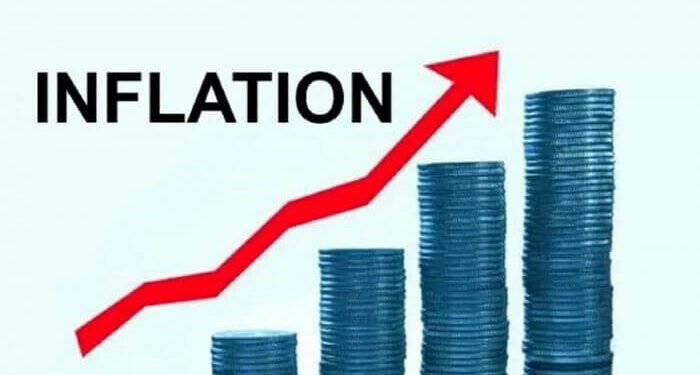
During the International Monetary Fund/World Bank Spring Meetings in Washington D.C., the IMF presented projections for Nigeria’s economy, highlighting a notable change in inflation rates.
The IMF Research Department’s Division Chief, Daniel Leigh, emphasized the significant effects of Nigeria’s economic reforms, particularly the exchange rate adjustments. These reforms have resulted in a notable increase in the inflation rate, reaching 33.2 percent in March.
Recent data released by the National Bureau of Statistics shows that Nigeria’s inflation rate has risen to 33.2 percent.
In the first quarter of 2024, the food inflation rate experienced a significant increase of over 40 percent.
According to Leigh, inflation is projected to decrease to 23 percent next year and further drop to 18 percent in 2026.
However, the fund’s prediction for a new single-digit (15.5 percent) inflation rate for 2025 differs from its prediction last year.
The author provided additional details on Nigeria’s economic growth, projecting an increase from 2.9 percent in the previous year to 3.3 percent in the current year. This growth is attributed to the recovery in the oil sector, enhanced security measures, and advancements in agriculture resulting from favorable weather conditions and the implementation of dry-season farming.
The IMF official also highlighted the growth in Nigeria’s financial and IT sectors, which has been quite significant.
“Inflation has risen due to various factors, including the implementation of reforms and the impact of exchange rates on imported goods,” Leigh explained.
He mentioned that the IMF has adjusted its inflation projection for the current year to 26 percent. However, he highlighted that inflation is expected to be controlled through the implementation of tight monetary policies and substantial interest rate hikes in February and March.
A representative from the IMF Research Department, Pierre Olivier Gourinchas, discussed the current state of the global economy. He noted that geopolitical tensions have contributed to the increase in oil prices, and many countries are still experiencing high service inflation.
Although Nigeria has consistently missed its inflation target of six to nine percent for more than ten years, Gourinchas emphasized the importance of prioritizing the return to target.
He highlighted the potential dangers of geo-economic fragmentation for global growth prospects and emphasized the importance of carefully adjusting monetary policy.
“Trade linkages are undergoing a transformation, and although certain economies may experience advantages from the restructuring of global supply chains, there is a potential downside of decreased efficiency, which could undermine global economic resilience,” Gourinchas expressed.
He highlighted the significance of safeguarding the advancements in monetary, fiscal, and financial policy frameworks, especially for emerging market economies. This is crucial to uphold a robust global financial system and prevent a lasting upsurge in inflation.